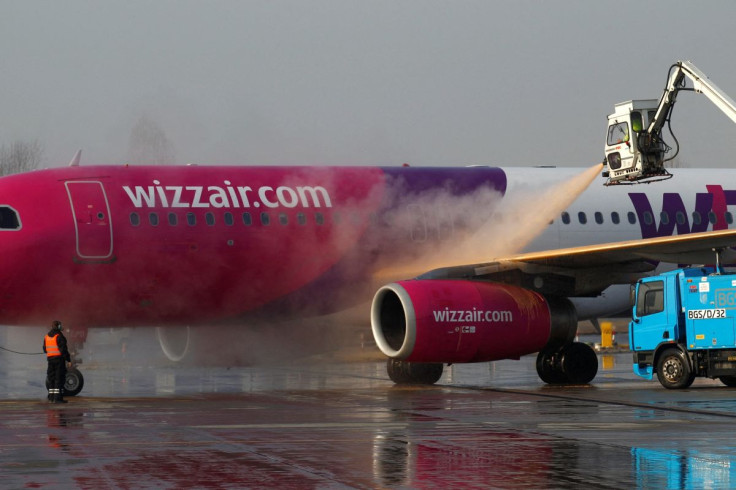Flight attendant reveals airline food secret that could change your travel approach
A person's senses are massively altered above the clouds.

A flight attendant has revealed that airlines oversalt their food on purpose, but their intention behind doing so is good.
Too much salt can lead to several diseases, including high blood pressure, heart issues, and even a stroke in some instances. It is highly advisable to keep salt consumption at a good level and it is a crucial part of maintaining a healthy diet. The suggested daily salt intake for adults is less than 6 grams per day, which is about one level teaspoon.
If a person is serious about this routine, then eating airplane food regularly will not help their case.
A flight attendant for over three years, Kamila Jakubjakova has opened up on why airlines oversalt their food, while also admitting that she carries her own snacks whenever she flies.
'I prefer to carry my own snacks'
When a person leaves the airport departure gate and gets on an aeroplane, they tend to leave their normal senses of taste and smell on the ground. As planes go higher and higher, the air pressure falls along with humidity and the sense of smell and taste are the first ones to leave the passenger. Studies have revealed that soon after one steps on an airplane, the atmosphere inside the cabin first affects their sense of smell. At as high as 30,000 feet, the humidity is less than 12%, having a massive impact on a flight passenger's taste.
"Due to different air pressure and dry air inside the airplane, our sense of smell reduces roughly by 20%, and so does the sensitivity of our taste buds, making the food taste blander. Therefore, the aircraft food is often oversalted. For this reason, I prefer to bring my own snacks when I fly," she told eShores.
The dryness and low pressure in the cabin together reduce the sensitivity of a person's taste buds to sweet and salty food by around 30%, according to a study conducted by Germany's Fraunhofer Institute for Building Physics, commissioned by German airline Lufthansa, in 2010, BBC reported. However, other flavours such as sour, bitter and spices are almost unaffected.
Not all flavours are affected above clouds
To bring more perspective, since the cabin is extremely dry, it further dries out a person's nasal passages, which makes their taste buds less sensitive. The low cabin pressure actually reduces the oxygen levels in the blood, which means olfactory receptors - the part of your nervous system that responds to smells- become less sensitive, which then subsequently weakens the sense of smell.
As mentioned above, not all flavours are affected by low cabin pressure, making it further complex for airline chefs to modify every recipe. Some ingredients, like curry and lemongrass, actually become more strong in the sky, while cinnamon, ginger, and garlic tend to sustain their taste.
Meanwhile, Russ Brown, director of In-flight Dining and Retail at American Airlines, pointed out that proper seasoning is "key to ensure food tastes good in the air" before adding that many recipes are often "modified with additional salt or seasoning to account for the cabin dining atmosphere."
Apart from the salt issues, the airlines have more obstacles in their in-house food business as they have to serve food to hundreds of people in the air and all the cooking cannot be done above the clouds. All meals are cooked on the ground and then they are packed, blast-chilled, frozen, and finally must survive re-heating in the air. As a result, all of this would modify the flavour even if the meals were served at sea level.
"Airline chefs are unique in that they mass produce recipes for thousands of customers. Many times the final product is not what was originally envisioned due to things outside their control. We design food with ingredients and packing we know can survive the long process between food preparation and delivery," added Brown.
© Copyright IBTimes 2024. All rights reserved.






